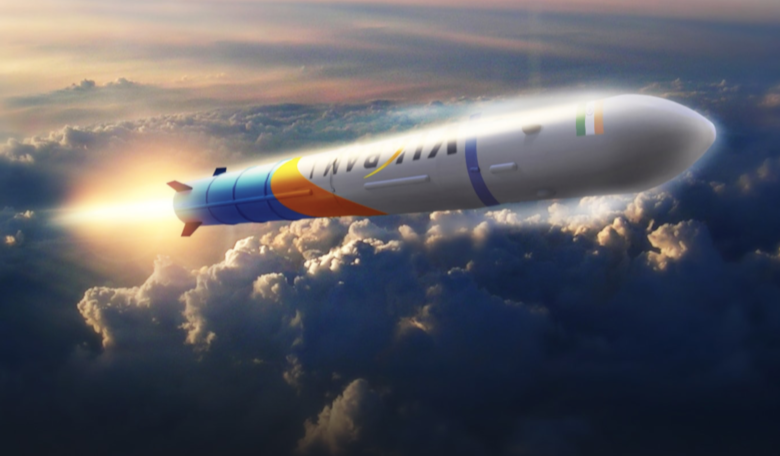Spacetech start-up Skyroot Aerospace announced last week that it has successfully tested Dhawan-1, India’s first privately developed fully cryogenic rocket engine.
Named in honour of Indian rocket scientist Satish Dhawan, the rocket successfully demonstrates the technology that will power the upper stages of its upcoming Vikram-2 orbital launch vehicle, one of three launch vehicles Skyroot has designed specifically for the small satellite market.
Vikram-1 can carry a payload of up to 225 kilogrammes to a 500 kilometre sun synchronous polar orbit (SSPO), or 315 kilogrammes to 45 degree inclination 500 kilometre low Earth orbit (LEO). The largest rocket, Vikram-3 can transport 580 kilograms to SSPO, or 720 kilograms to LEO.
According to the company, all vehicles can be assembled and launched within 72 hours from any launch site.
Dhawan-1’s engine has been developed using 3D printed technology and is fuelled by Liquid Natural gas (LNG), which is considered the rocket fuel of the future, and Liquid Oxygen (LoX) – a high-performance, low-cost and clean rocket fuel, the company said.
“This is a completely ‘Made-in-India' cryogenic engine developed using 3D printing with a superalloy, reducing manufacturing time by more than 95 percent,” said Pawan Kumar Chandana, cofounder and chief executive at Skyroot Aerospace. “This test makes us one of the very few companies in the world to have successfully demonstrated this technology.”
A liquid-fuelled launch vehicle is propelled by burning liquid fuel mixed with oxidizer and although an LNG propulsion system is considered to have lower performance, it does have advantages such as; a lower risk of explosion, less costly propellants and the fuel is less evaporable in space, meaning it is suitable for a vehicle that travels to space for a prolonged period.
“The complex engine start and shut-off transients are perfectly smooth, combustion was very stable, and pressure was rock steady. This is a phenomenal achievement by our team and we’ve mastered handling two cryogenic fuels,” V. Gnanagandhi, a Padma Shri awardee and a pioneer of cryogenic rocket propulsion in India, who heads the cryogenic propulsion team at Skyroot, said.
Founded in 2018 by former ISRO rocket scientists, Skyroot has also reportedly signed a launch deal with satellite provider Dhruva Space as the company gears up to raise an additional $40 million next year to fund its booster development.
The company also raised $11 million in July, and signed a memorandum of understanding with Precious Payload, a New York City-based company that helps arrange rocket launches for satellite producers.
Skyroot is now looking to expand its team by hiring project management lead, aerospace systems development lead, avionics integration and test engineers, to name just a few of the available positions.
''Our team has grown 2 times in strength in 2021 and now we are aiming to double our strength further by 2022,” Skyroot Aerospace COO and co-founder Naga Bharath Daka said last month. “Post government opening up the space sector to private players, the Indian Space sector is set to grow exponentially and offer great career opportunities for several engineering streams.’’











